Keynote Speakers
1: Advances in Genetic Innovation and Technology
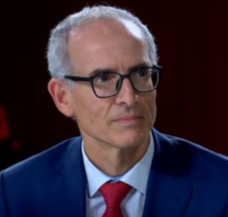
Faouzi Bekkaoui
Faouzi Bekkaoui is the director of the National Institute of Agronomic Research (INRA), Morocco and the scientific director of the Adaptation of African Agriculture initiative. He is president of the scientific council of MAScIR and a member of the Board of Trustees of ICARDA. He was previously director of the school of agriculture and coordinator of the AgroBioSciences research program at the University Mohammed 6 Polytechnic of Benguerir (2017-19). He also worked as Executive Director of National Research Council Canada (NRC) Flagship Wheat Improvement Program (2012-2017), at the NRC Plant Biotechnology Institute in Molecular Biology and Genomics as manager (2006-2011), at Genome Prairie as project manager (2003-2006) at GenServe as laboratory manager (1999-2003) and ID Biomedical in the field of DNA diagnostics as scientist and program lead (1993-1999). During his career, he has co-authored 45 scientific articles in the fields of Agriculture, DNA diagnostics, molecular biology, genomics and plant physiology. He has also contributed recently to numerous national and international panels under the theme of food security and climate change. Bekkaoui holds a master's degree in physiology from the University of Tours (1983) and a doctorate in plant physiology (1986) from the University of the Sorbonne (formerly Paris 6).
2: Agri-food systems research towards Food sovereignty and Nutrition security
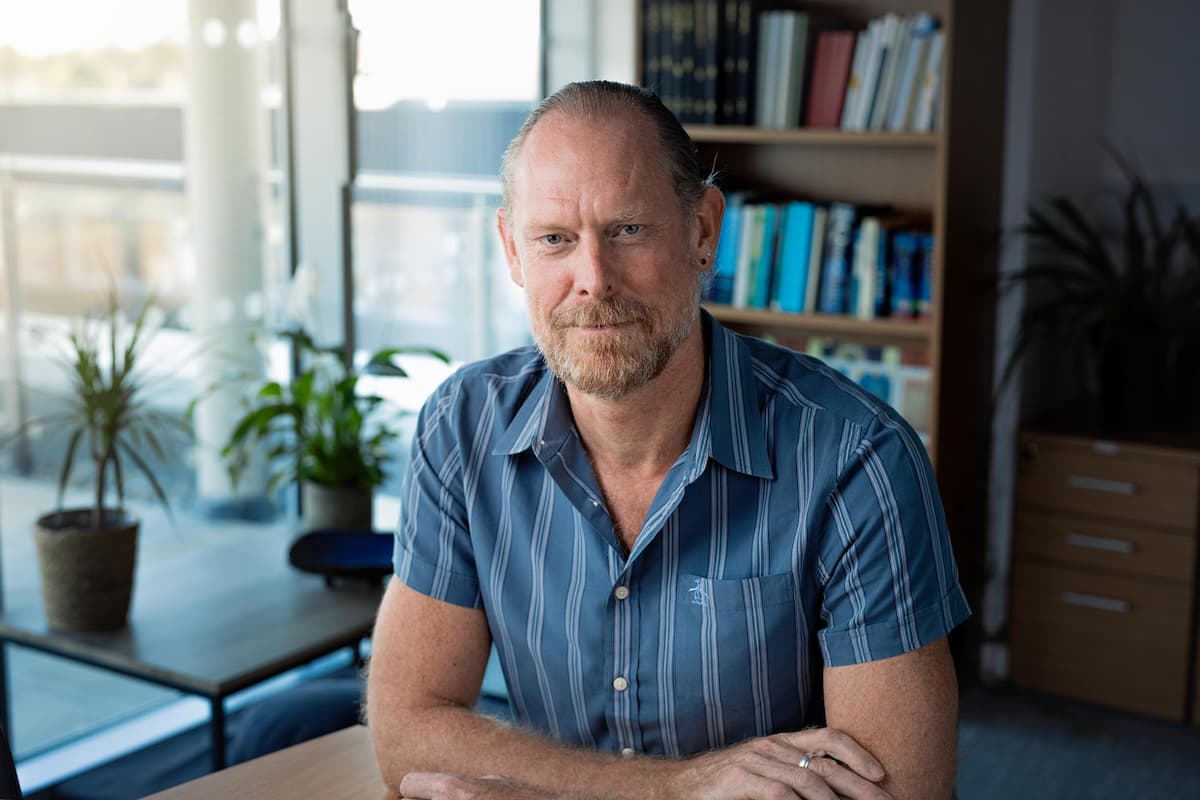
Giles E. D. Oldroyd
Giles Oldroyd studies the mechanisms by which plants form beneficial interactions with micro-organisms, both bacteria and fungi, that aid in the uptake of nutrients from the environment, including nitrogen. A long-term aim of this research is to reduce agricultural reliance on inorganic fertilisers and he currently heads an international programme funded by Bill & Melinda Gates Agricultural Innovations. He completed his PhD in 1998 at the University of California, Berkeley, studying plant-pathogen interactions and then moved to Stanford University, USA, to work on nitrogen fixation in the laboratory of Prof. Sharon Long. After working 15 years as a group leader at the John Innes Centre in the UK, he moved to the University of Cambridge in 2017 and in 2019 was elected the Russell R Geiger Professor of Crop Sciences. In this role he directs the Crop Science Centre, an alliance between the University of Cambridge and NIAB. The Crop Science Centre strives to deliver transformative technologies that sustainably increase agricultural productivity for all the world’s farmers. In 2020 he was elected a Fellow of the Royal Society and a member of EMBO and in 2021 he was elected foreign member of the National Academy of Sciences, USA.
3: Dealing with Global Shocks from a Crop Improvement Perspective
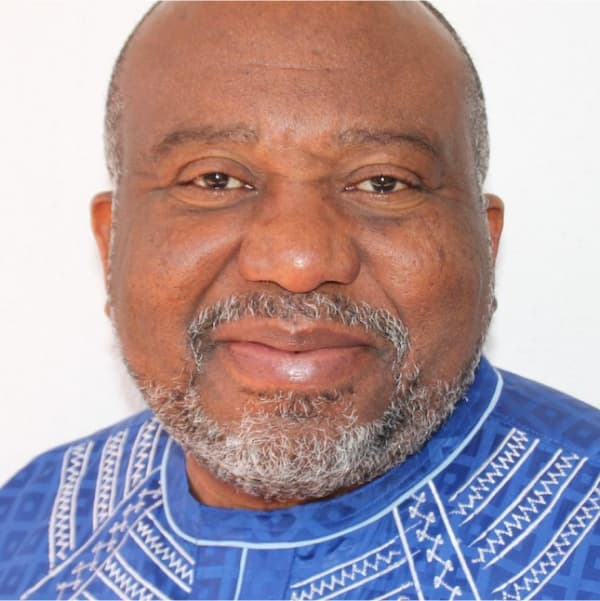
Chikelu Mba
Dr Chikelu Mba leads FAO’s crop improvement work portfolio. This involves the strengthening of Member Countries’ institutional and human capacities for conserving plant genetic resources for food and agriculture; breeding progressively superior crop varieties and delivering quality seeds and planting materials of preferred crop varieties to farmers. Previously, he led the Plant Breeding and Genetics Laboratory of the Joint FAO – International Atomic Energy Agency Centre for Nuclear Techniques in Food and Agriculture, Vienna and Seibersdorf, Austria. Earlier, he was a research fellow in cassava molecular genetics at the International Centre for Tropical Agriculture (CIAT), Cali, Colombia; and Plant Breeder Geneticist and Cassava Program Coordinator at the National Root Crops Research Institute in his native Nigeria. Dr Mba, who obtained his PhD in Plant Breeding and Genetics from the University of Nigeria, is also Adjunct Professor in the Centre for Crop and Food Innovation, Murdoch University, Australia.
4: Capacity Building and Education in Crop Improvement
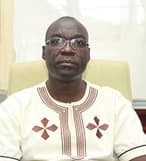
Patrick Okori
Dr Patrick Okori is a Ugandan national who received his doctoral degree from the Swedish University of Agricultural Sciences in Uppsala in 2004. He received BSc Agriculture and MSc Crop Science degrees from Makerere University in Uganda in 1994 and 1997 respectively. Patrick is an international academic expert in curriculum and program design, educator, trainer, research innovator and scientific leader. During his formative years, Patrick worked at Makerere University, where he played a key role in institutional reform, both in research and training. As a science leader, Patrick established one of the largest multi-disciplinary research programme at Makerere University to underpin training and research. Patrick was until 2022 a Principal Scientist with the International Crops Research Institute for the Semi-arid Tropics (ICRISAT) crop improvement, and was the Deputy Director of ICRISAT's Global Research Programme on Accelerated Crop Improvement. Patrick is an expert in plant breeding and has commercialized over 30 varieties of legumes, especially groundnut, that are widely grown in east and southern Africa. Patrick is also expert in technology scaling-out, whose team reaches out annually to over 50,000 households with different products and services (seed systems, agribusiness development, and market led development management). As a science leader he has also led the revamp of groundnut breeding and research for development programmes of Malawi, Mozambique, Ethiopia, Kenya, DR Congo, South Sudan, Tanzania, Uganda, Zambia and Zimbabwe. Patrick is also a thought leader who has been involved in high level planning, strategy and visioning for national, regional, continental to global agencies. He has contributed to new thrusts and visioning of futures at Makerere University, RUFORUM, ASARECA, FARA, COMESA, AU, (AU-NEPAD- CAADP country investment plans), the CGIAR and ICRISAT. Early in his career, Patrick was part of the team that developed the Eastern Africa's premier agriculture, bio-policy and bio-innovation research programme, called BIOINNOVATE. Patrick is currently the Executive Secretary of RUFORUM a network of 163 Universities in 40 countries of Africa.
5: Advances in Forgotten and Underutilized Crop Research
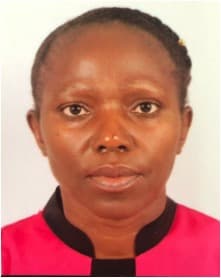
Damaris Achieng Odeny
Damaris Achieng Odeny (PhD) is a genomics scientist currently leading a global cluster on Genomics, Pre-breeding and Bioinformatics at the International Crops research Institute for the Semi-Arid Tropics (ICRISAT). Damaris is particularly passionate about developing genomic resources for underutilized crop (UC) species. Her career on UCs began over two decades ago when she developed SSR markers in pigeonpea as a graduate student between the Max Planck Institute for Plant Breeding Research (Cologne, Germany) and ICRISAT (Patancheru). She went on to work on underutilized vegetables at the Agricultural research Council (South Africa) (2009 – 2013) and generated the first reference genome for Amaranthus tricolor. She later on published the first reference genome of the African eggplant (Solanum aethiopicum) as a result of initiatives set up while she was at the ARC. When she joined ICRISAT (Nairobi) in 2013, she continued to work on UCs, both cereals and legumes. Her achievements at ICRISAT include the setting up of the first pre-breeding program in finger millet in Africa, the generation of the first finger millet chromosome scale assembly, the first QTL mapping of Groundnut Rosette Disease (GRD), the successful hosting of the 16th World Congress on Parasitic Plants, the mentorship of more than 60 young upcoming scientists in Africa, among others.
6: Seed Systems and Germplasm conservation
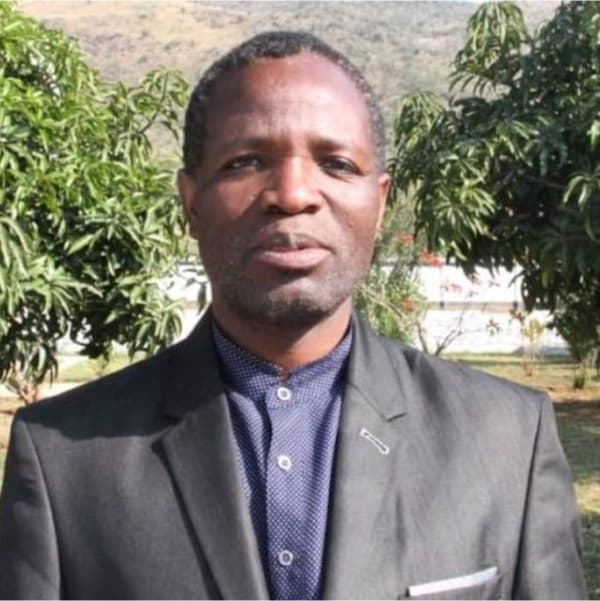
Claid Mujaju
Dr Claid Mujaju has specialized in agriculture and biodiversity, during his extensive career. His highest qualification is a Ph.D. in Agricultural Sciences specializing in Crop Production and Product Quality from the Swedish University of Agricultural Sciences (SLU). He was a Postdoctoral Research Associate at SLU, in 2012. He is formally employed by the Ministry of Agriculture, Zimbabwe, since 1995 and has rose in ranks over the years to Curator of the National Genebank, Head of Seed Services Institute in charge of Seed Certification and Quality Control, Variety Release System and Registrar of Plant Breeders’ Rights. Lately as of 29 October 2021, he assumed the post of Director, Research Services Department, overseeing the functions of seven institutes offering regulatory and specialist services. Also, he is the national focal point for crop-related multilateral environmental agreements (e.g., ITPGRFA; CGRFA etc.). Dr Mujaju represent the Africa Region in the International Seed Testing Association Executive Committee since 2019, which promotes in seed testing worldwide, He is a member of the African Union Seeds and Biotechnology Working Group and has contributed to agriculture and seed sector development through seed policy harmonization in SADC, COMESA and African Union. He consulted in areas of genetic resources (especially NSAP on PGRFA) and seed systems for regional and international organizations: AFSTA, FAO, ICRISAT, FANRPAN, COMESA, CCARDESA, Market Matters (NY, USA), the Access to Seeds Foundation (Netherlands) & Cardno Emerging Markets (Kenya). He has published more than 30 research papers and book chapters on genetic diversity and seed systems.
7: Precision Phenotyping for Crop Improvement
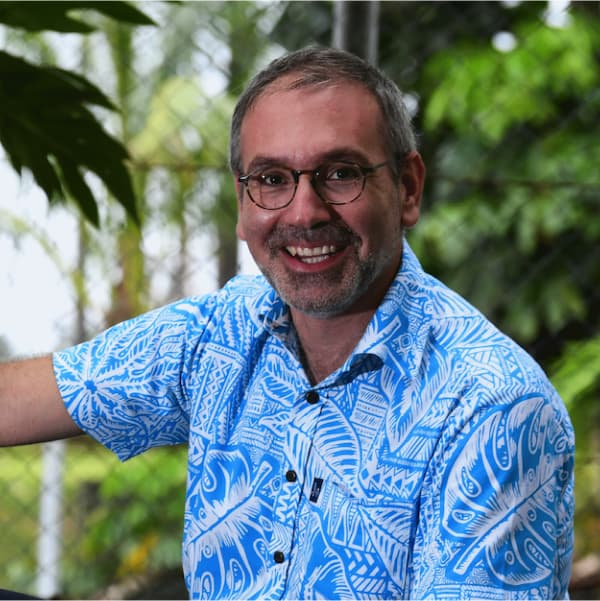
Michel Edmond Ghanem
Pr. Michel Edmond GHANEM is a Crop Eco-Physiologist and Agronomist working as Senior Scientist at at CIRAD, the French agricultural research and cooperation organization (AGAP Institut-PhenoMEn ). Pr. Ghanem is the Founding Chair of the Forgotten Crops Society (https://www.orphancropssociety.org/) and the Vice-President of the African Crops Alliance. He holds an Agronomy degree and a Ph.D. in Plant Biology from the University of Louvain (UCLouvain), Belgium, and an accreditation to supervise research (HDR) from the University of Montpellier, France. He started his career as a Research Fellow at the CEBAS-CSIC (Murcia, Spain). Since then, he served at the International Center for Agricultural Research in the Dry Areas (ICARDA-CGIAR), Rabat, Morocco as Crop Physiologist where he established and led the Crop Physiology laboratory that was serving the global breeding and crop improvement efforts of ICARDA mandate crops. Pr. Ghanem was also the Program Leader for Genetic Resources at the Land Resources Division of the Pacific Community (SPC) where he led the Centre for Pacific Crops and Trees (CePaCT). He was also a Professor of Plant Science at the University Mohammed VI Polytechnic (UM6P-Morocco). His research focuses on identifying traits that can enhance productivity, resource use efficiency and tolerance to abiotic stresses (drought and temperature). During his terms at the CGIAR and UM6P, Pr. Ghanem has designed new phenotyping machines (Isorropia) and developed high-precision phenotyping platforms (PhenoMerzouga and PhenoMA) to accelerate breeding. His areas of expertise cover crop eco-physiology, genetic resources, and crop modeling.